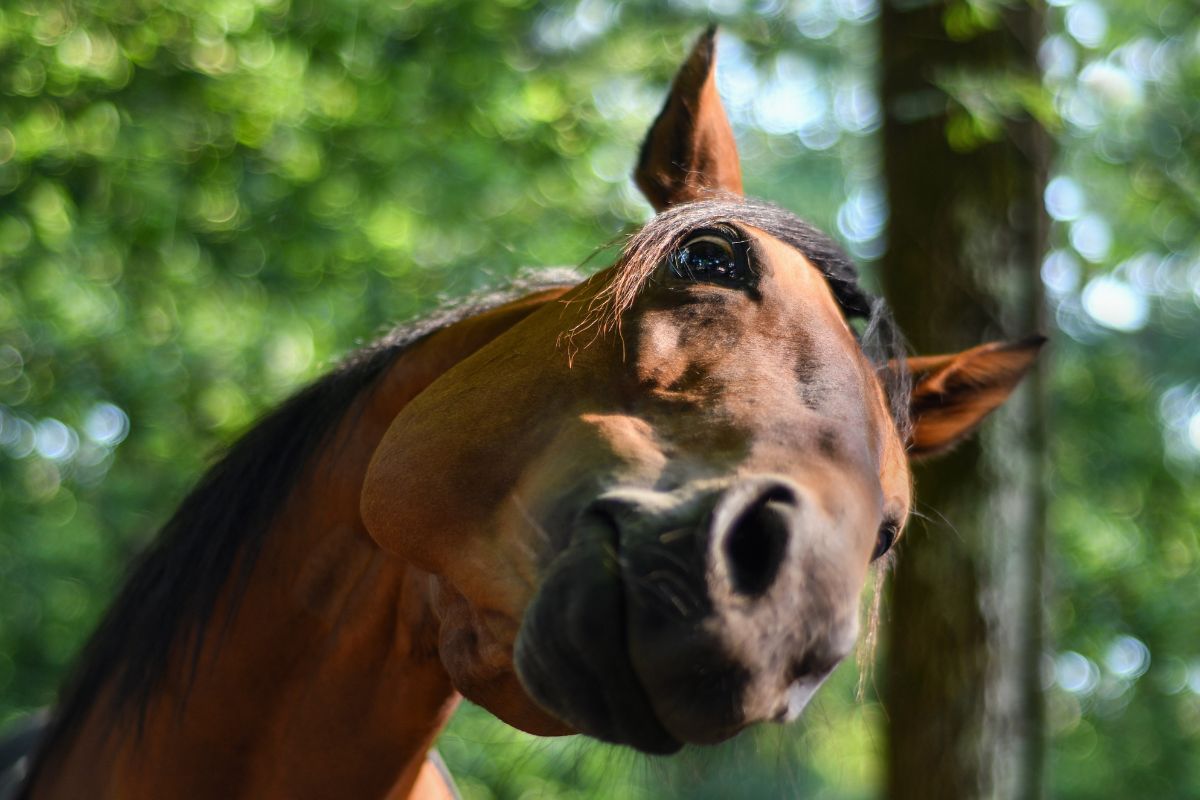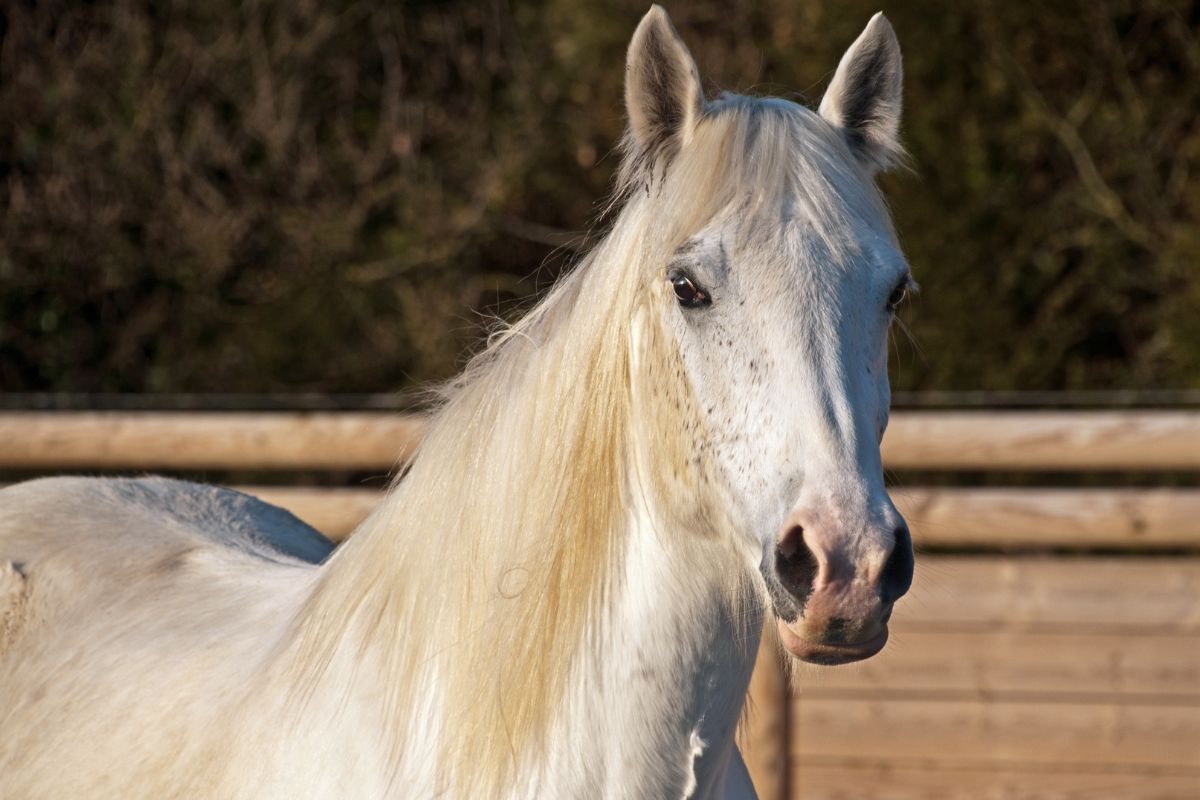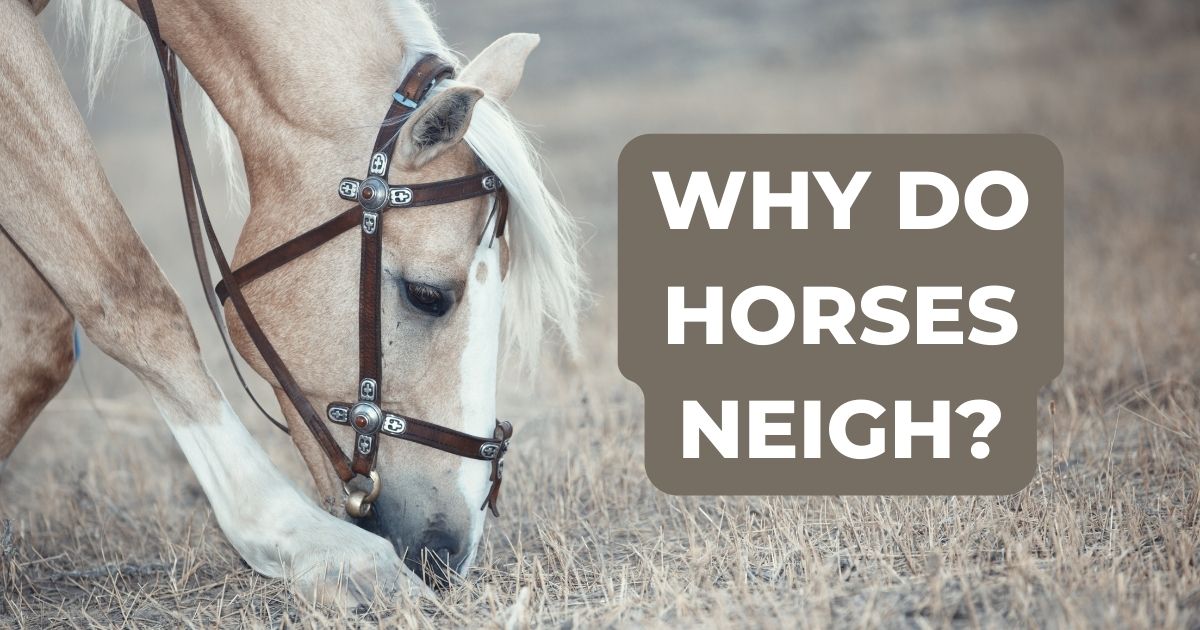Explore why do horses neigh and the science behind it! Learn from experts and unravel the mystery. Join us now!
What Sounds Does a Horse Make?
An equine makes various horse sounds, but the most recognizable is the neigh. A neighing sound is a form of communication, conveying emotions like excitement or distress. Expert research has delved into the complexity of these sounds, providing fascinating insights into the behavior and language of horses.
This includes what it means when a horse says “neigh.”

Why Do Horses Neigh?
Horses neigh for various reasons, and understanding this behavior is vital to understanding horse communication. The horse neigh is a multifaceted sound of a horse that can signal different emotions and intentions.
Communication With Other Horses
A horse might neigh to communicate with other horses in the herd, expressing its location or social status.
Expressing Emotion
Emotions such as anxiety, excitement, or frustration can trigger a neigh. It’s a way for horses to vocalize their feelings to humans or other horses.
Calling for Attention
If a horse is separated from its herd or owner, it may neigh to call for attention or indicate distress.
Responding to Familiar Stimuli
Horses might neigh in response to familiar sights or sounds, such as a favorite human or feeding time.
Health-Related Reasons
Sometimes, the reason for a horse neighing might be health-related. Inconsistent or excessive neighing can signal underlying health issues that require attention.
Experts in equine behavior have spent considerable time researching and analyzing the complex nature of horse neighing. Recognizing the nuances of this behavior is essential for horse owners, riders, and enthusiasts, as it allows for better communication and a deeper connection with the animal.
One can approach and handle horses with greater empathy and insight by understanding horse neighing.
Do Horses Neigh Out of Boredom?
The question, “Do horses neigh out of boredom?” leads us to explore what it means when a horse neighs. While horses may neigh for various reasons like communication, emotion, or distress, boredom might indeed trigger a neigh.
Horses, being social animals, thrive on stimulation and interaction. When they lack engagement or mental stimulation, they might express their boredom through different behaviors, and neighing can be one of them.
Owners and caregivers must pay attention to consistent or unusual neighing, which might indicate that the horse needs more interaction or mental challenges. Engaging the horse in exercises, games or allowing social interaction with other horses can reduce boredom-induced neighing.

Why Do Horses Neigh at Night?
The phenomenon of horses neighing at night is complex, and various contributing factors may exist. Understanding this behavior requires an individual assessment of the horse’s environment, social dynamics, routine, and health.
Contrary to some myths, horses neighing at night doesn’t necessarily have mystical or ominous connotations. Here’s a breakdown of some reasons:
- Communication with the herd
- Response to unfamiliar stimuli
- Separation anxiety
- Feeding time
- Health or discomfort issues
Other Sounds Horses Make
The horse sounds and meanings offer a rich and complex form of communication that conveys various feelings and intentions. Understanding these sounds is essential for anyone involved with horses. Below, you’ll find the different sounds listed in alphabetical order, along with an overview of their meanings:
Blow
A gentle exhaling sound is often a sign of relaxation or contentment. Horses often blow when exploring new scents.
Grunt
Typically associated with effort or exertion, a grunt might occur when a horse works hard, such as during physical exercise.
Nickering
A soft, gentle sound is often made when a horse is content or seeking attention from a human or another horse. It’s commonly heard during feeding time or when greeting a familiar person.
Snort
A sharp exhaling sound through the nostrils, usually signaling alertness or curiosity. Snorting might occur when a horse encounters something unfamiliar or exciting.
Squeal
A high-pitched, often aggressive sound, usually made during social disputes or when a horse is annoyed. Squeals can be a warning or a way to establish dominance.
Whinny
Similar to a neigh but softer and often more melodious. Whinnies are generally used to communicate over longer distances, express a desire for companionship, or locate other horses.

The Word’s Out!
In unraveling the mystery behind why a horse neighs, we’ve journeyed through the multifaceted world of horse communication. From signaling emotions and intentions to communicating with other horses, the neigh is a complex and nuanced expression that goes beyond mere sound.
Understanding the reasons behind a horse’s neigh is more than an academic endeavor; it’s a path to fostering a deeper, more empathetic relationship with these magnificent animals.
For horse owners, riders, and enthusiasts alike, recognizing the different sounds and what they signify is crucial. It empowers us to respond appropriately and build trust with our equine friends.
The insights gained in this exploration equip us with the knowledge to approach horses with greater sensitivity, wisdom, and care.

